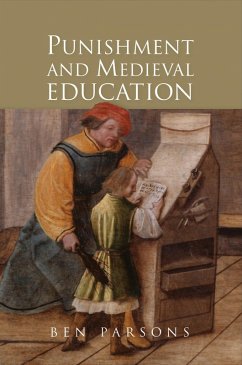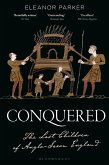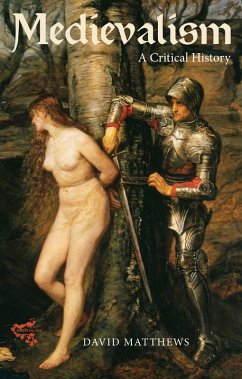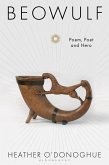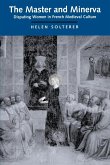An exploration of the contours imposed on physical punishment by education, establishing how pedagogues accommodated violence into a system of rules, rituals and objectives.
What meanys shall I use to lurne withoute betynge?, asks a pupil in a translation exercise compiled at Oxford in 1460s. One of the most conspicuous features of medieval education is its reliance on flogging. Throughout the period, the rod looms large in literary and artistic depictions of the schoolroom: it appears in teaching manuals, classroom exercises, and even in the iconography of instruction, which invariably personifies Grammatica as a woman brandishing a birch or ferule. However, as this book seeks to demonstrate, the association between teaching and beating was more than simply conventional. Medieval pedagogues and theorists did not merely accept the utility of punishment without question, but engaged with the issue in depth and detail. Almost every conceivable aspect of discipline was subject to intense scrutiny: the benefits it might transmit to learners, the relationship between mental development and physical correction, and the optimal ways in which chastisement should be performed, were all carefully examined.
This book unpicks the various levels of this debate. It surveys material from multiple languages and discourses, in order to build up the fullest possible picture of medieval thought and practice. Each chapter addresses a specific aspect of punishment in school: topics include the classical inheritance of medieval teaching, therituals and structures of discipline, theoretical accounts of its effects, and the responses of students themselves to grammar's regimen. As a whole, the study not only exposes the impressive rigour with which beating was defined, but also some of the doubts, paradoxes, and even anxieties that surrounded its usage. At the same time, it also raises larger questions about the presence of violence across medieval culture, and how we might confront it withoutplaying into the reductive stereotype of "a barbaric age".
BEN PARSONS is Lecturer in Medieval and Early Modern Literature at the University of Leicester.
What meanys shall I use to lurne withoute betynge?, asks a pupil in a translation exercise compiled at Oxford in 1460s. One of the most conspicuous features of medieval education is its reliance on flogging. Throughout the period, the rod looms large in literary and artistic depictions of the schoolroom: it appears in teaching manuals, classroom exercises, and even in the iconography of instruction, which invariably personifies Grammatica as a woman brandishing a birch or ferule. However, as this book seeks to demonstrate, the association between teaching and beating was more than simply conventional. Medieval pedagogues and theorists did not merely accept the utility of punishment without question, but engaged with the issue in depth and detail. Almost every conceivable aspect of discipline was subject to intense scrutiny: the benefits it might transmit to learners, the relationship between mental development and physical correction, and the optimal ways in which chastisement should be performed, were all carefully examined.
This book unpicks the various levels of this debate. It surveys material from multiple languages and discourses, in order to build up the fullest possible picture of medieval thought and practice. Each chapter addresses a specific aspect of punishment in school: topics include the classical inheritance of medieval teaching, therituals and structures of discipline, theoretical accounts of its effects, and the responses of students themselves to grammar's regimen. As a whole, the study not only exposes the impressive rigour with which beating was defined, but also some of the doubts, paradoxes, and even anxieties that surrounded its usage. At the same time, it also raises larger questions about the presence of violence across medieval culture, and how we might confront it withoutplaying into the reductive stereotype of "a barbaric age".
BEN PARSONS is Lecturer in Medieval and Early Modern Literature at the University of Leicester.
Dieser Download kann aus rechtlichen Gründen nur mit Rechnungsadresse in A, D ausgeliefert werden.

